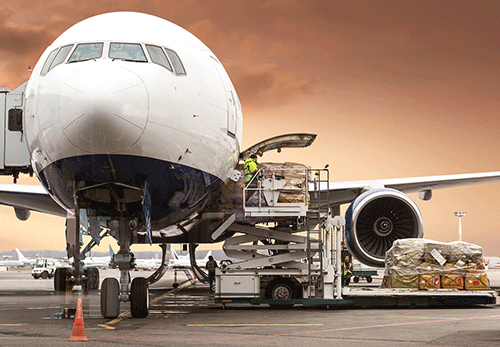Since 2018, a significant amount of blocked airline funds has been repatriated from Angola, Ethiopia, Ghana, Nigeria and Zimbabwe, with the International Air Transport Association (IATA) working with the respective governments.
Currently, US$1.68 billion (about N$30 billion) in airline funds remain blocked across Africa, with IATA hard at work in advising governments on best practices to clear backlogs and how to liberate these funds from repatriation.
“As of September, US$1.68 billion of airline funds are blocked across Africa – out of US$2.36 billion globally. The numbers are alarming, and the impact of this on connectivity is devastating,” said Kamil Alawadhi, IATA’s regional vice president for Africa and the Middle East.
Speaking yesterday at the 55th annual general meeting of the African Airlines Association (AFRAA), Alawadhi emphasised that aviation is capital intensive.
AFRAA, founded in Ghana, is a trade association of African airlines – and it is, as of February 2021, headquartered in Nairobi, Kenya. Its primary purpose is to establish and facilitate cooperation between African airlines
“Cash flow is key for airlines’ business sustainability – when airlines are not able to repatriate their funds, it severely impacts their operations and their decisions on where to fly. But the risk of blocked funds is not just limited to airlines; the negative impact extends to the countries blocking the funds. It impacts the country’s economy and its connectivity, and it hurts investor confidence and reputation. Aviation is not only an economic enabler; it is a pillar of modern economies,” said Alawadhi.
He further urged governments to prioritise aviation and find sustainable solutions in the clearing of blocked funds, pledging IATA’s continued support.
Alawadhi added that Africa’s aviation industry is still recovering from significant losses due to Covid-19. To make up for this shortfall, he advised governments to avoid imposing higher fees, levies, carbon taxes or new taxes on air transport, trade or tourism.
These measures, said Alawadhi, would only make air travel more expensive and less accessible in Africa, where the average airfare is already 30% higher than the industry average and the jet fuel cost is 10% to 20% higher than the global average.
“Higher costs would discourage customers who are sensitive to prices, resulting in lower demand and revenue for airlines and other stakeholders in the aviation sector, such as airports, ground handlers, suppliers and air navigation services. They would also hamper economic development and limit the opportunities for job creation and income generation. High cost leads to high price, which reduces demand and growth in a price elastic market, and ultimately affects connectivity negatively,” Alawadhi cautioned.
He, therefore, emphasised that the message is clear, and advised governments to follow the International Civil Aviation Organisation (ICAO)’s policies on charges and infrastructure – and consult with airlines and industry to ensure a fair and cost-effective operational environment that benefits a more connected Africa.
Earlier this year, AFRAA joined IATA’s Focus Africa initiative.
Alawadhi said AFRAA is instrumental and strengthens the Focus Africa coalition as it works to increase aviation’s role in Africa’s development.
“Our associations share a common vision – the development of a safe, secure and sustainable aviation industry in Africa that facilitates business, trade and tourism and contributes positively to Africa’s economic growth and development. The continent is home to the world’s most rapidly growing population, but it accounts for just 2% of air passenger and cargo transport activity. The road to realising aviation’s potential will be long, but with the strong partnerships we have, we can, and we will realise the needed change,” said Alawadhi.



